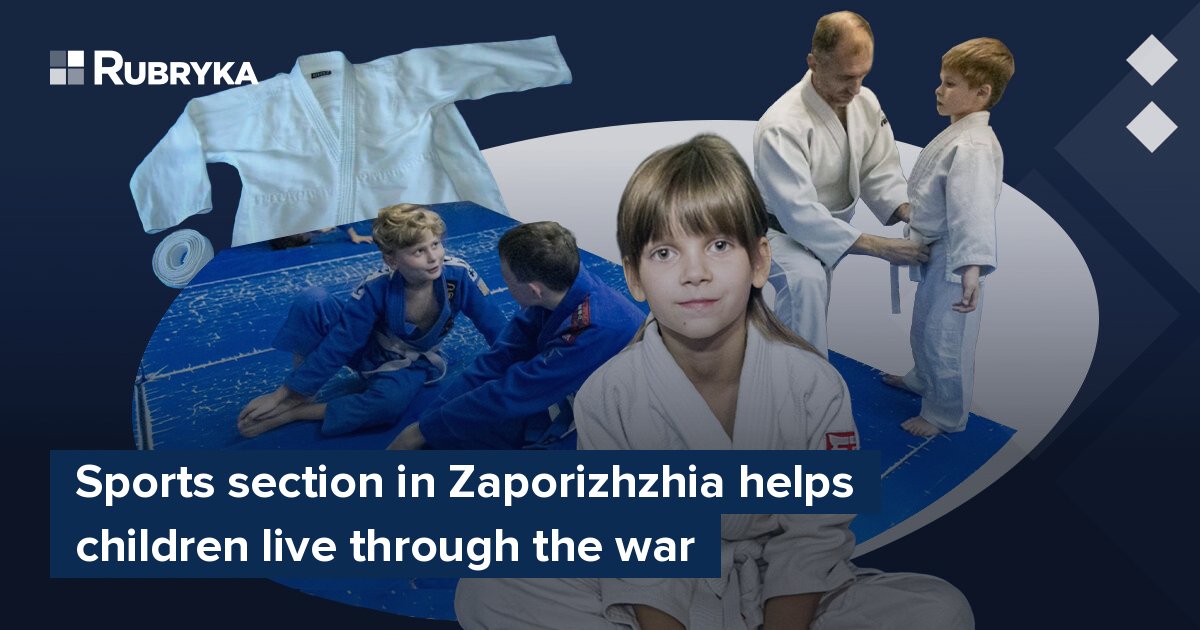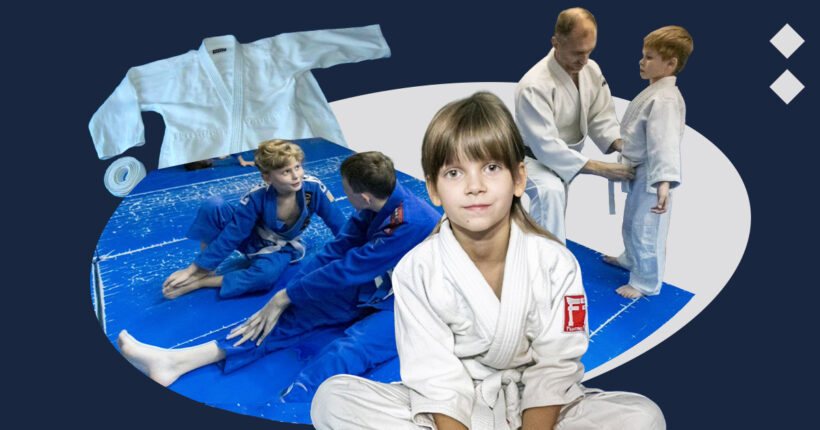
"If the enemy attacks and you don't have muscles, you can't do anything"
The noise of children fills the small sports hall several times a week. It seems to be filled with light when it is already dark outside the window, and inside, the children are happily preparing for a new training session. Children change into uniforms — white and blue kimonos.
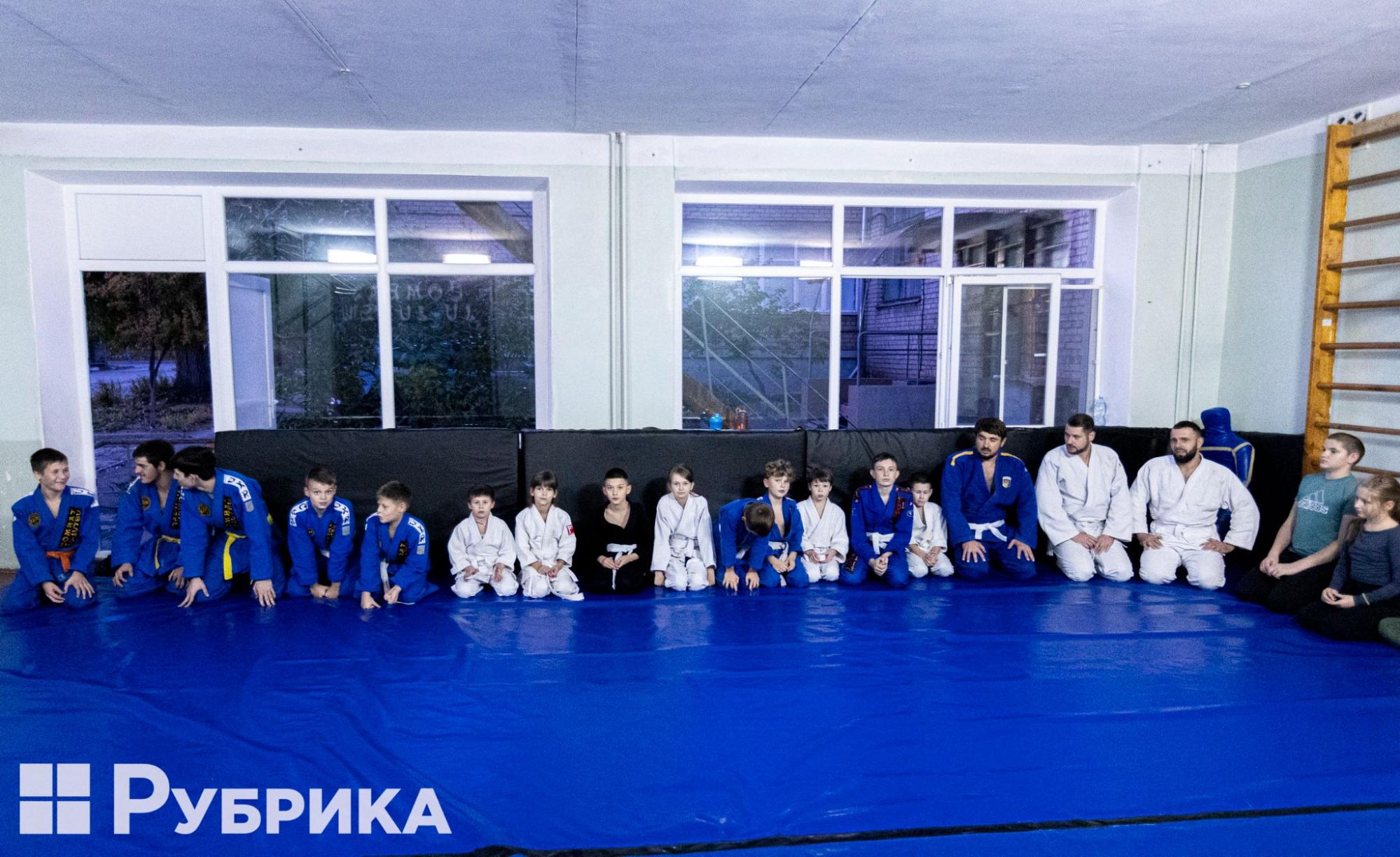
A coach enters the room and is greeted with a bow. The ethics of martial arts are about discipline and the ability to follow certain rules. Training begins with a warm-up so that children warm up their muscles and do not injure them during the session.
And now, to the most interesting part — polishing the learned movements. You watch with amazement how boys and girls hover in the air. And they do it so easily, casually, as if they were born to fly, not walk.
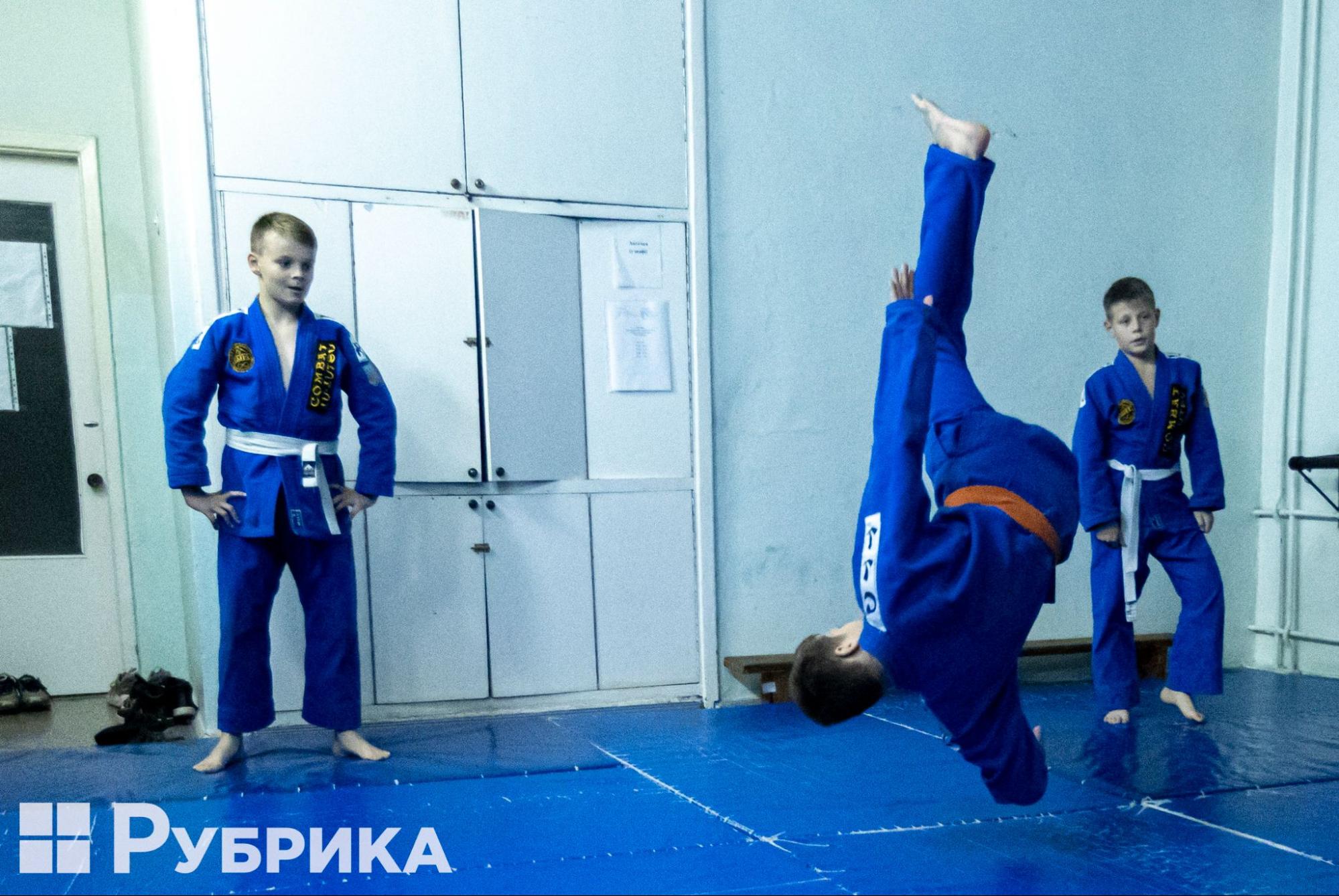
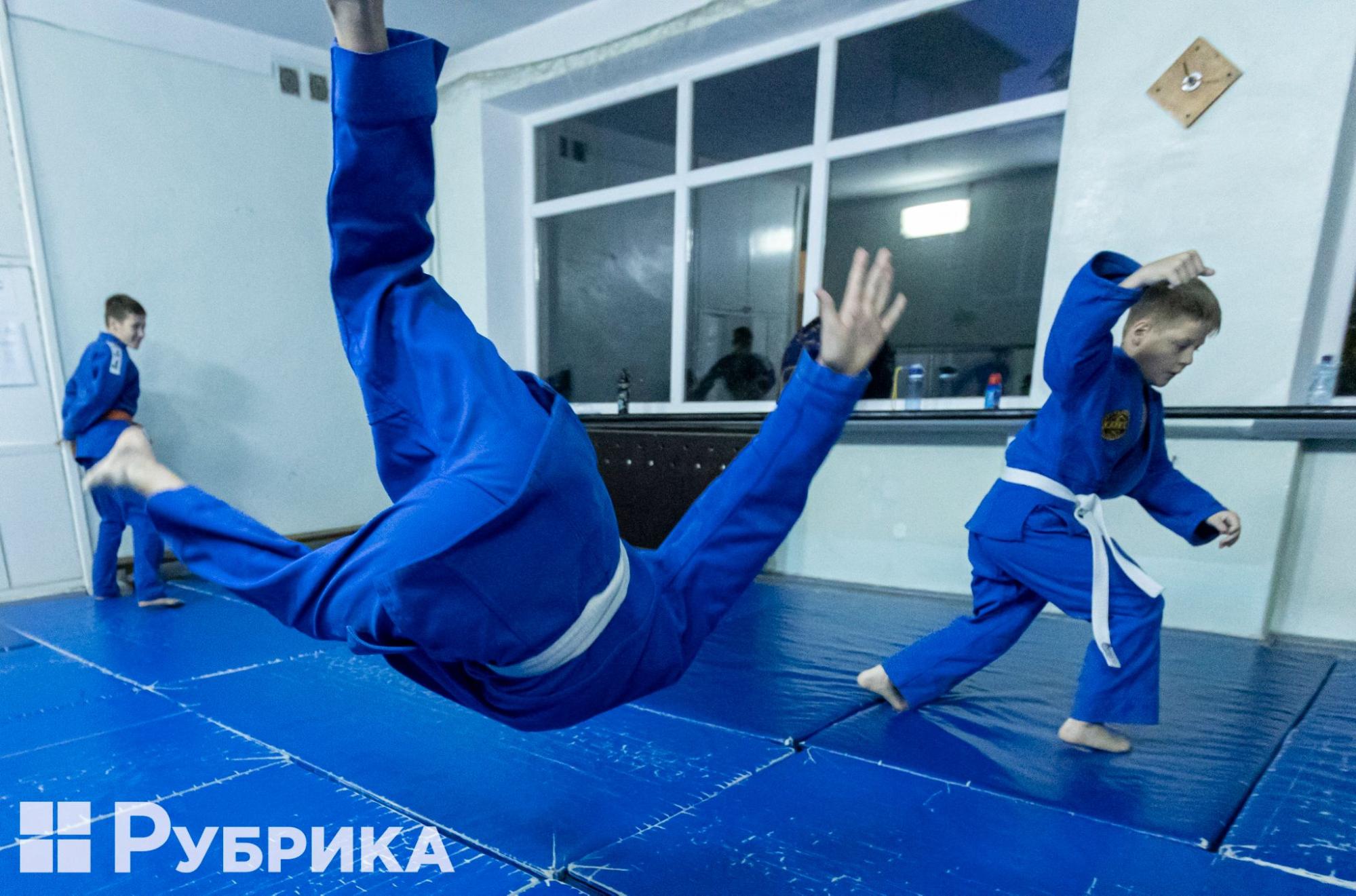
Athletes practice.
"I like training the most. It makes you strong," says Damir.
Damir is six and very serious: he wants to become the "strongest sheriff," so he trains hard and does not miss a single class. He answers why he should be the strongest: "If the enemy attacks and you don't have muscles, then you won't be able to do anything."
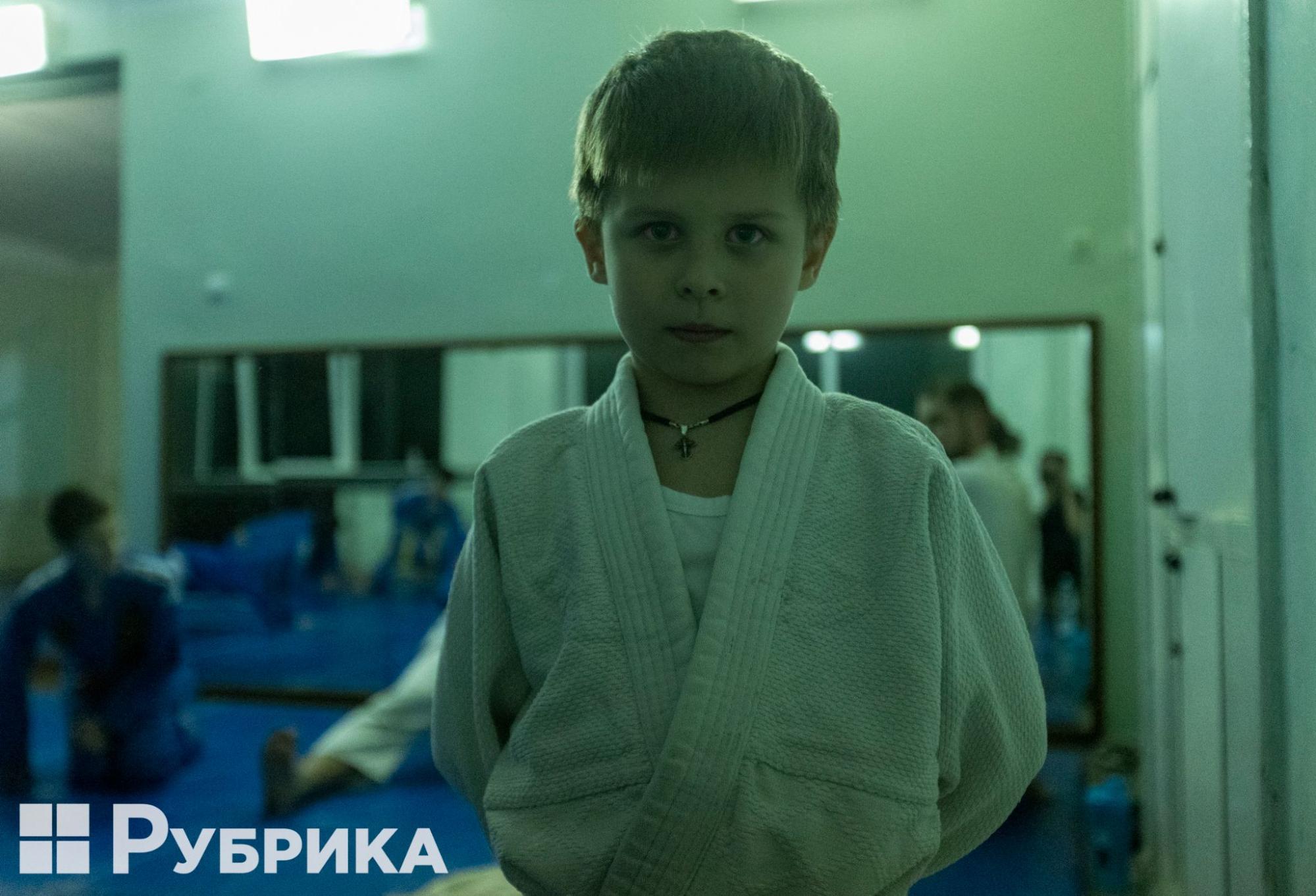
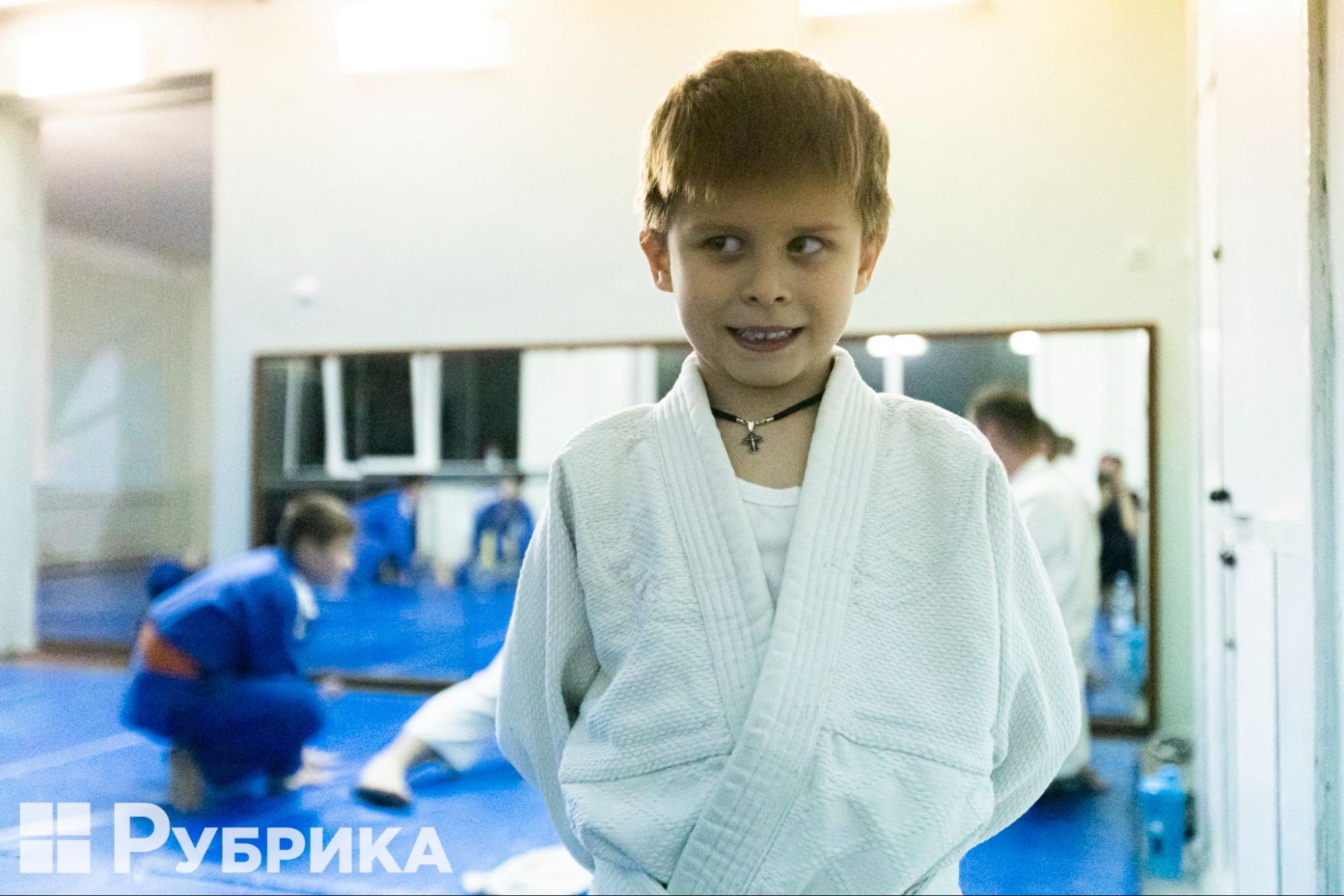
Damir likes to be serious, but he made an exception for us.
Jiu-jitsu is a martial art that, in addition to strength exercises, aims to develop self-discipline and inner peace. Here, you must carefully monitor your breathing, body, and opponent's movements. However, for children, the jiu-jitsu club is also about peer socialization. Young fighters find friends here and have fun.
Yaroslava is nine years old. Previously, she was engaged in Chinese boxing and now practices a new sport. She dreams of becoming a singer, so she attends music classes, loves the theater, and learns to defend herself during training.
"Soon, it will be three months that I have been training. I like it here: the coaches are good. They will always support me, tell me how to do exercises, and help me. I have many friends here," says the girl.
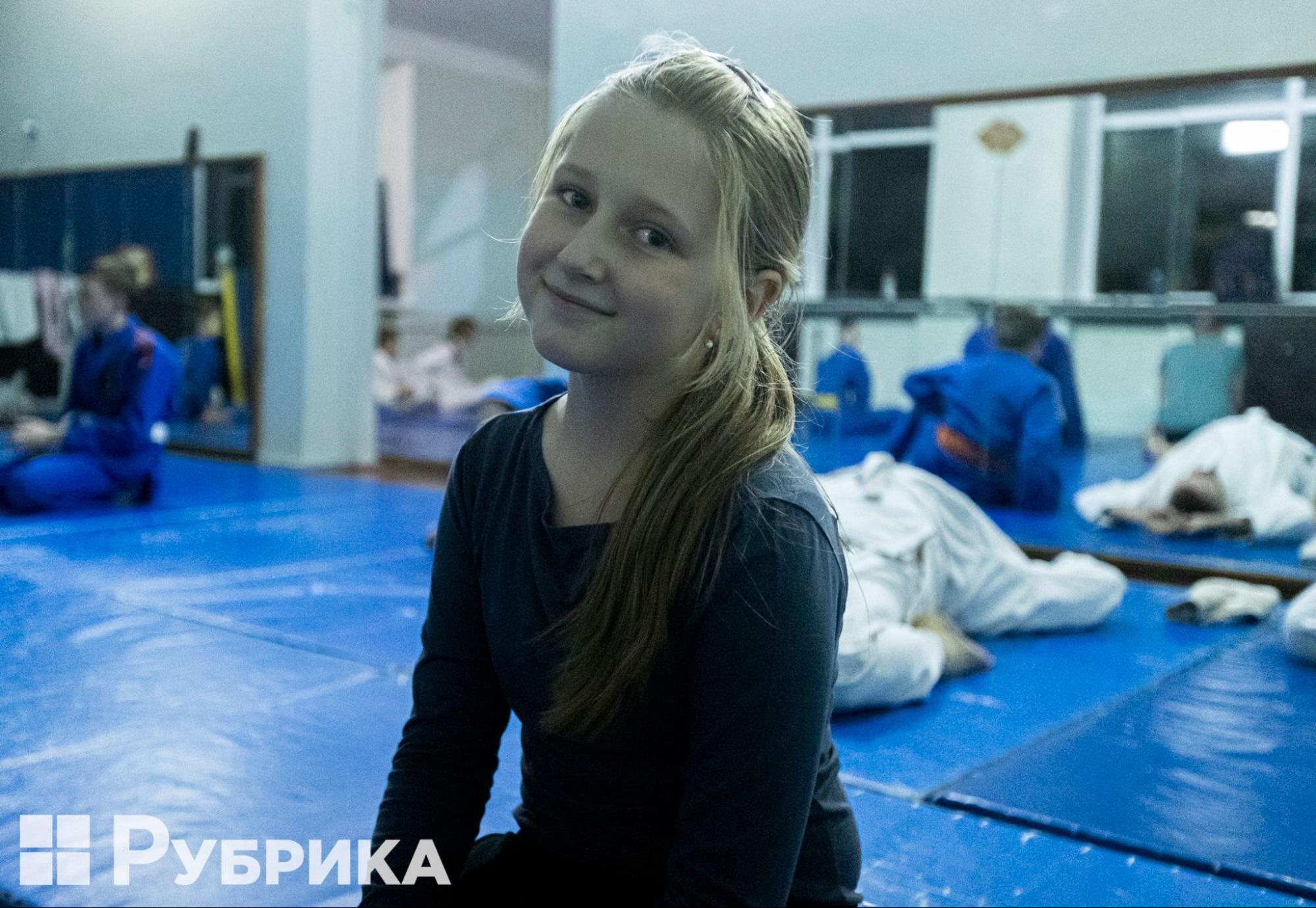
Ukraine's future performer, Yaroslava.
Yaroslava's friend Sasha is in the second grade. Like Damir, she dreams of becoming a policewoman or a soldier. She also has one tiny wish: to have many animals: 40 cats, 30 kittens, and 30 dogs.
Sasha already has a cat at home, Kira, who "constantly bites everyone's legs." She says she likes to come to training because they teach throwing and go to competitions.
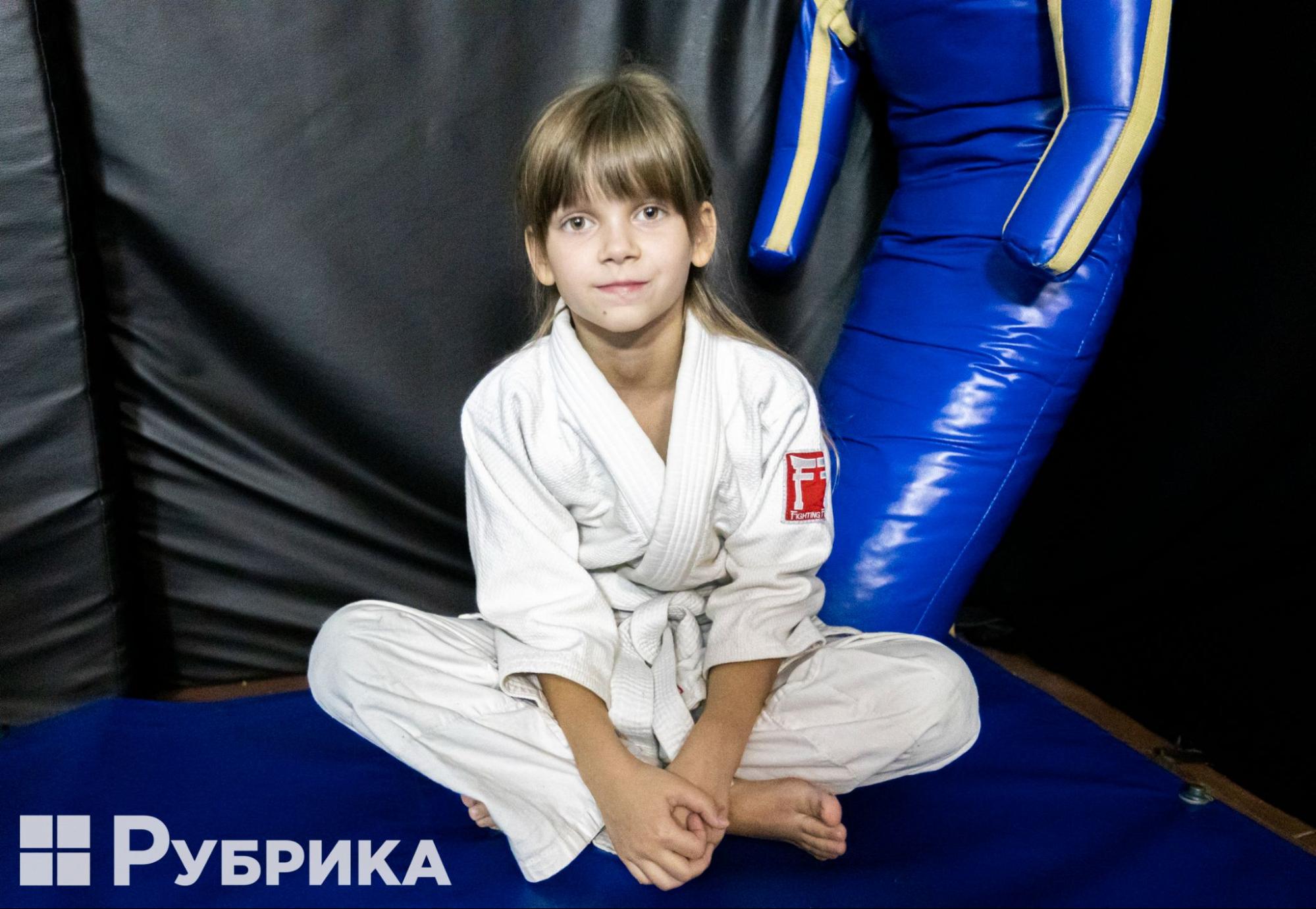
Sasha is a future law enforcement officer.
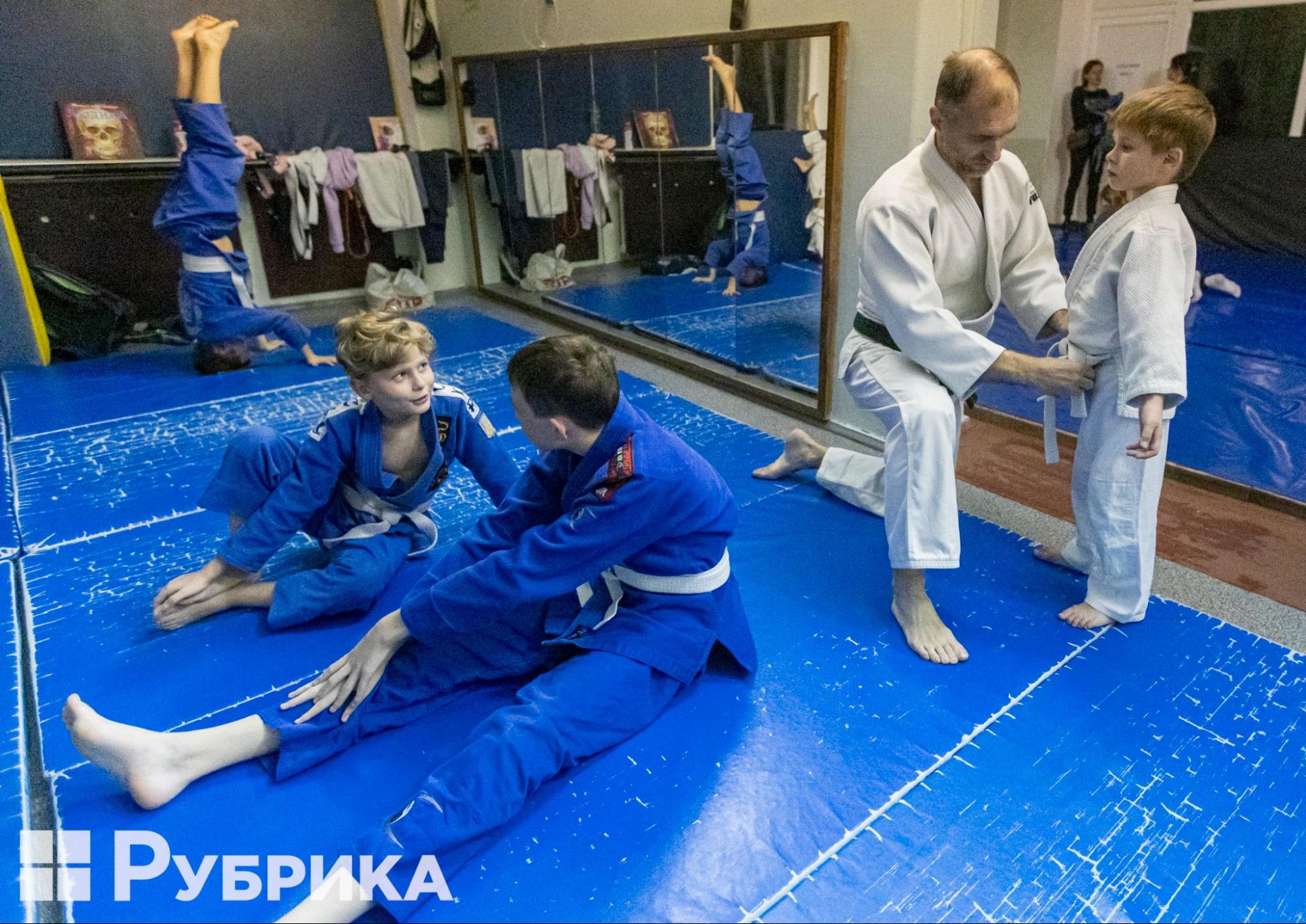
Young athletes are preparing for training.
Many children are already in the fourth year of online education: first, schools were closed due to the COVID-19 pandemic, and in 2022 — due to the start of a full-scale war and constant danger. They learn to communicate with their peers and learn to build social ties and their own boundaries precisely at such sports sections, clubs, and extracurricular activities. Some of them really miss school and friends, and for some, school is now associated only with annoying Zoom and hours spent at the computer.
David is one of the last. He is nine years old, and school for him has existed only in an online form, so he does not like it very much. His favorite subjects are computer science and mathematics.
"Grandma said that I will be an accountant," he shares with us.
David goes to training because he wants to be sporty and be able to defend himself, and he also thinks that, instead of being an accountant, he will choose to become a policeman. But he still has his whole life ahead of him, so let's not rush him.
He shakes our hand tightly in farewell, and we thank him for his sincerity, although the hand still hurts a little.
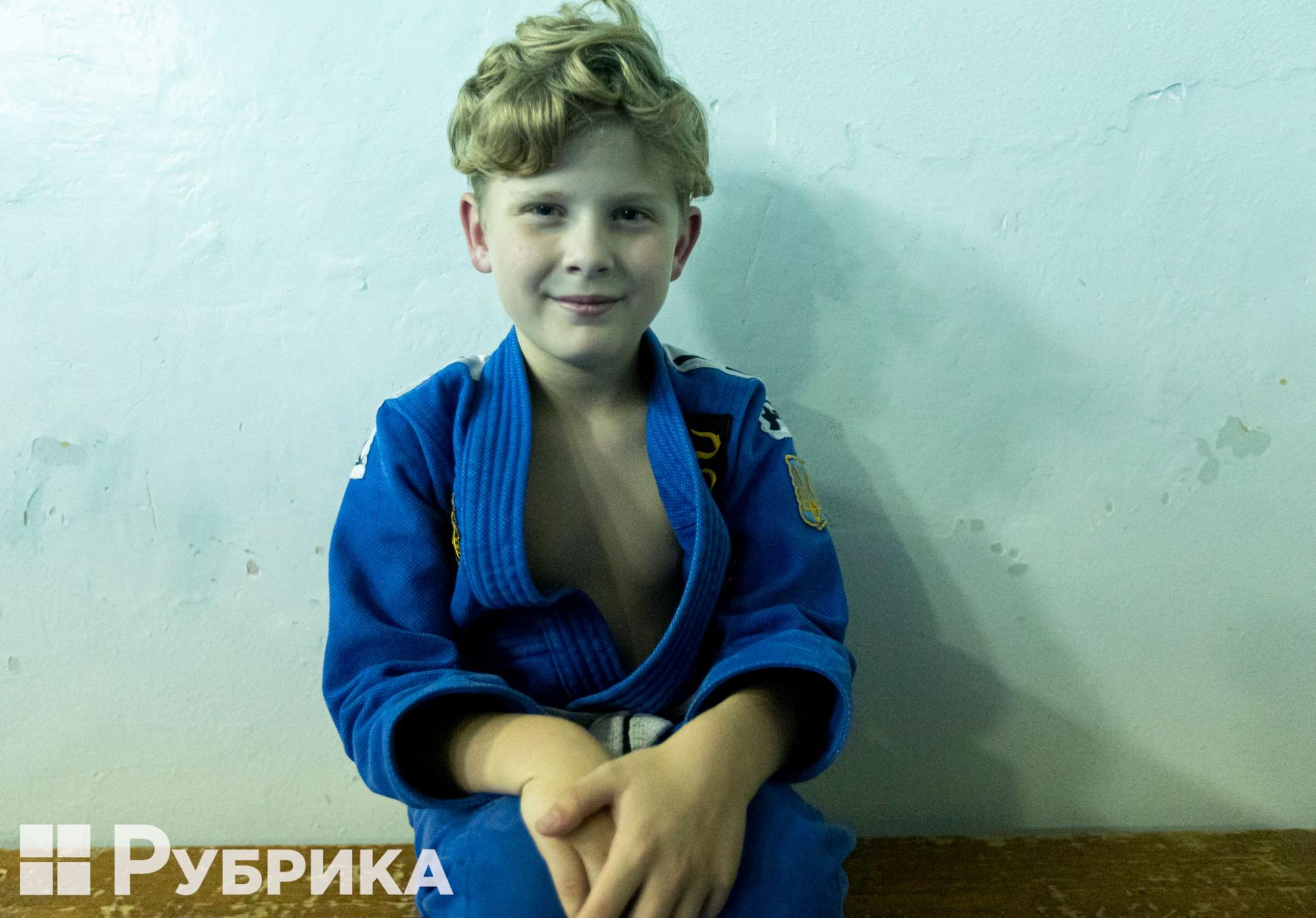
Even accountants need to be able to defend themselves!
Direct energy to the right place
Jiu-jitsu training is conducted by two trainers — married couple Maryna and Mykhailo Sergeev. Mykhailo has been teaching for thirteen years and has taught dozens of children. He says that children grew up in his classes. Once, he received a phone call from an already grown-up girl who used to practice with him, who offered him to become the godfather of her newborn child.
Maryna and Mykhailo often took their children to competitions and won medals. For the couple, this is their own realization, and they will not stop there. Mykhailo says that it would be wrong because the cause brings results.
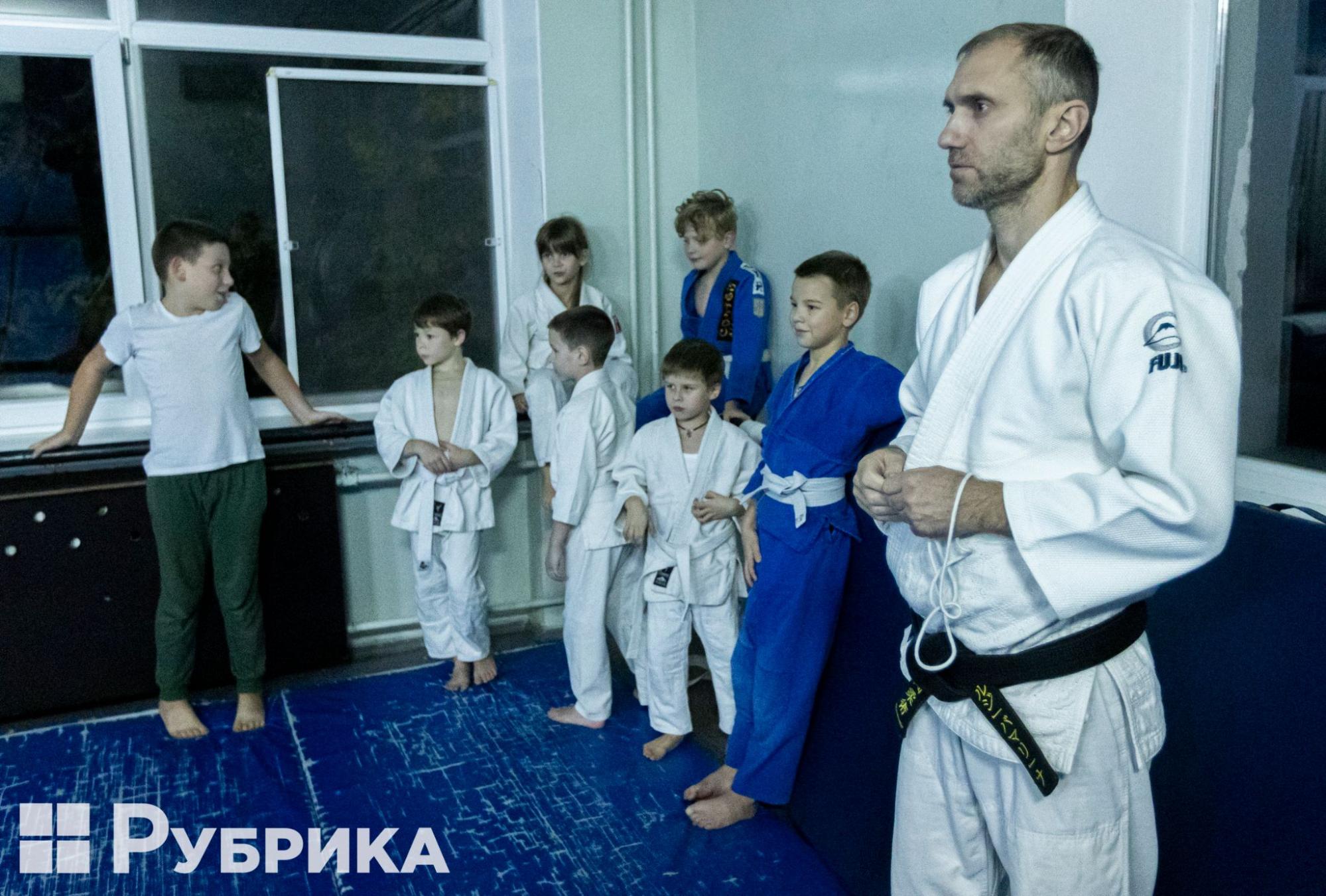
Mykhailo with his students.
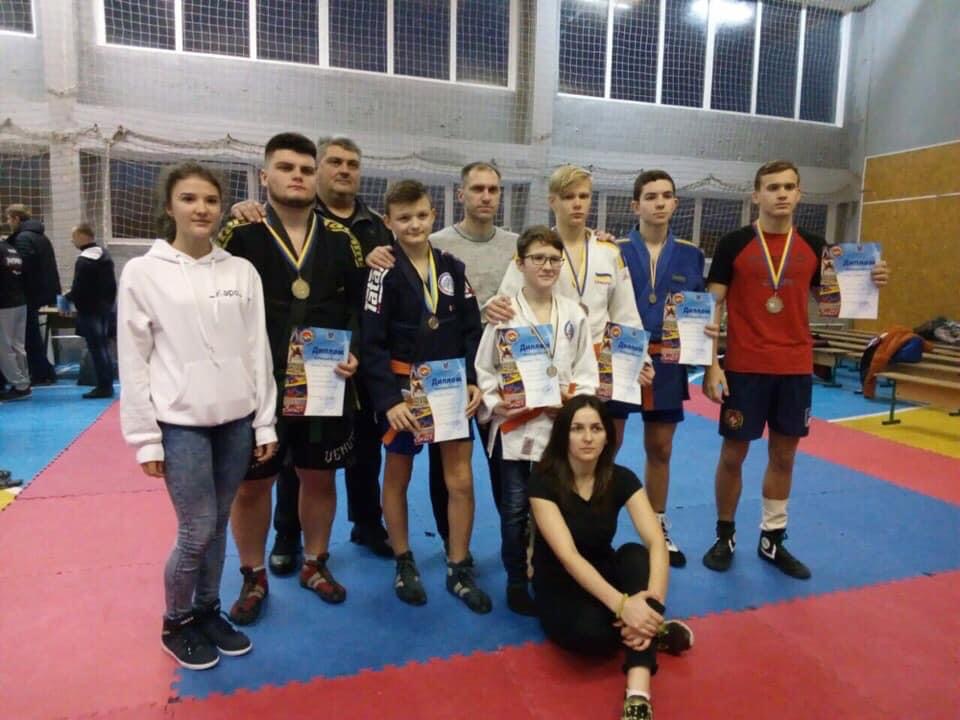
Maryna, Mykhailo, and their students. Photo: Maryna's personal archive
The beginning of a full-scale war made adjustments to the spouses' work. Training had to be stopped, and they were resumed only two months later. At first, only five people came to the hall, as the others either evacuated or did not leave the shelter due to the heavy shelling of Zaporizhzhia.
Subsequently, residents relocated from the region began to come to the city. Zaporizhzhia became a new place of residence for them because their hometowns and villages remained under occupation or constant threat of shelling. Many families came with children who missed their friends, home, and life. They were scared and confused. The jiu-jitsu section of Mykhailo and Maryna gladly accepted them and started their training. For children, this place has become synonymous with safety.
"It was clear from these children that they are from the occupied territories, where everything is different," Mykhailo shares. If they are not singled out here, in the hall, after a while, they begin to adapt little by little among the children. Children react very strongly to all possible sounds and shouts. Everything is calm with us thanks to discipline in training. Children become completely different — able to communicate with others, which was difficult to achieve initially. It was difficult to get an elementary reaction from them to the teachers' demands because the children closed themselves off. "They were waiting for some treason, a shout, a clear command, which we are trying to completely get rid of," Mykhailo told Rubryka.
Now, the children are not at all shy about expressing themselves: they actively run around the hall, talk, laugh, and put all their strength into performing tricks. The teacher believes this is primarily because jiu-jitsu classes give them confidence in their own strength and in themselves.
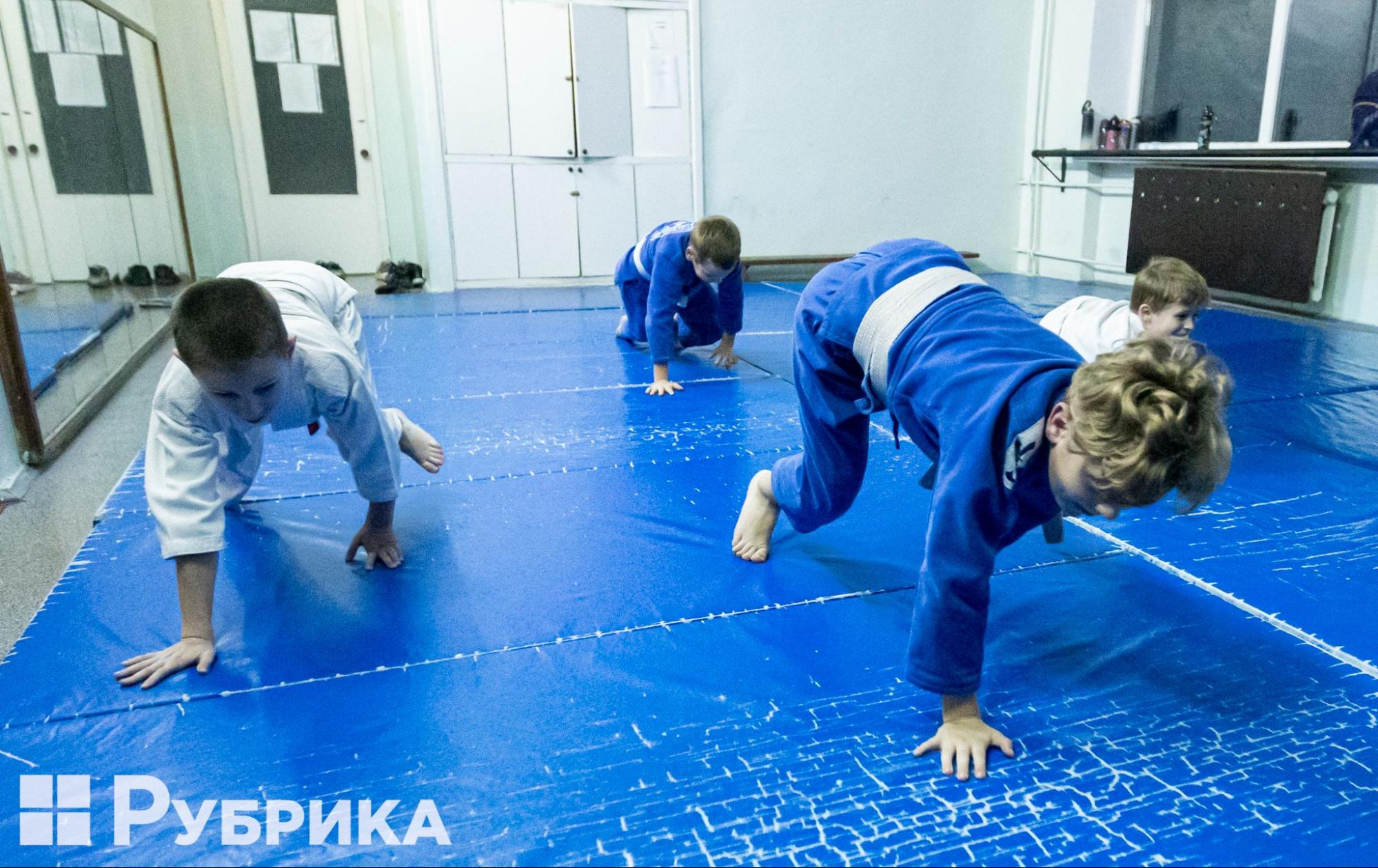
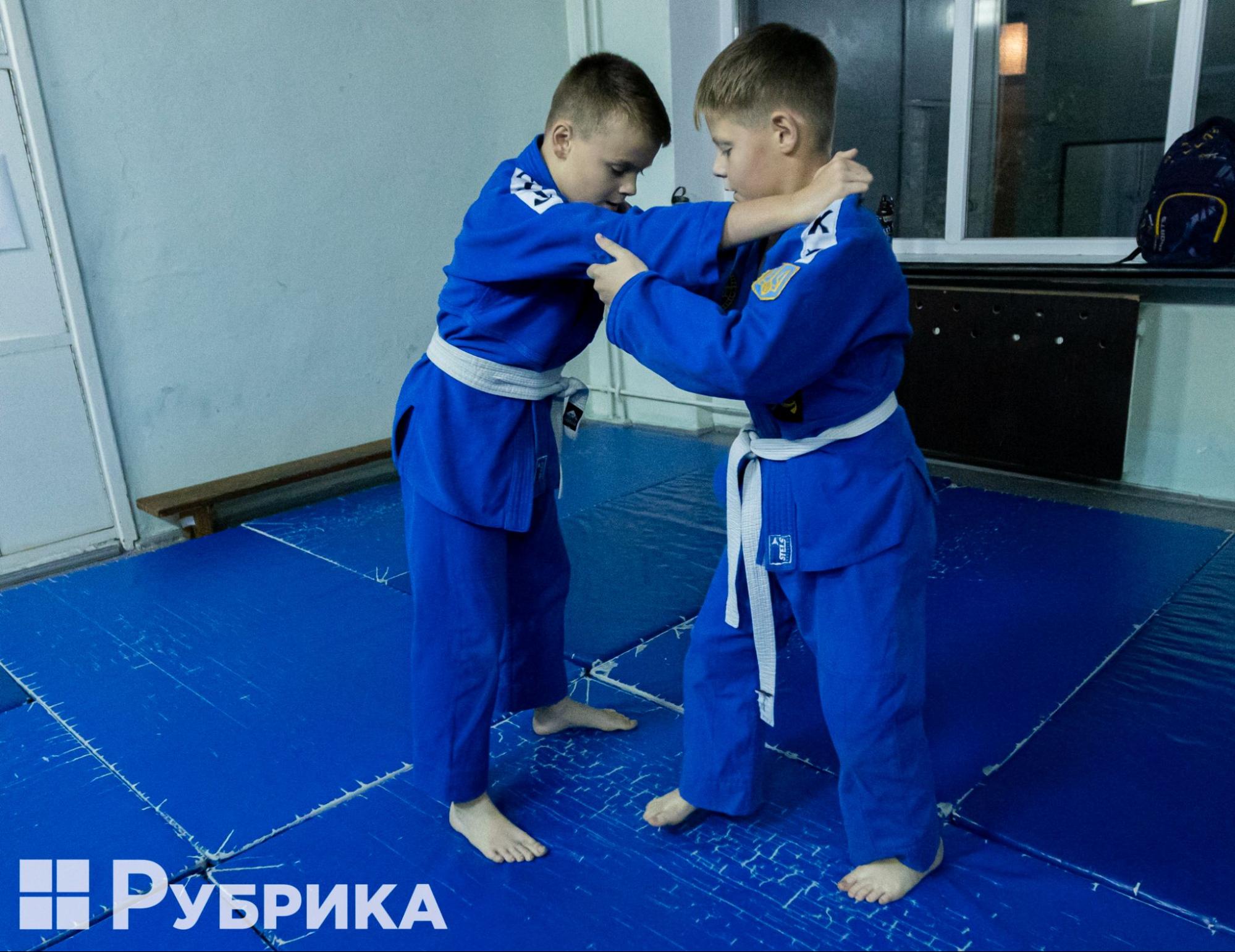
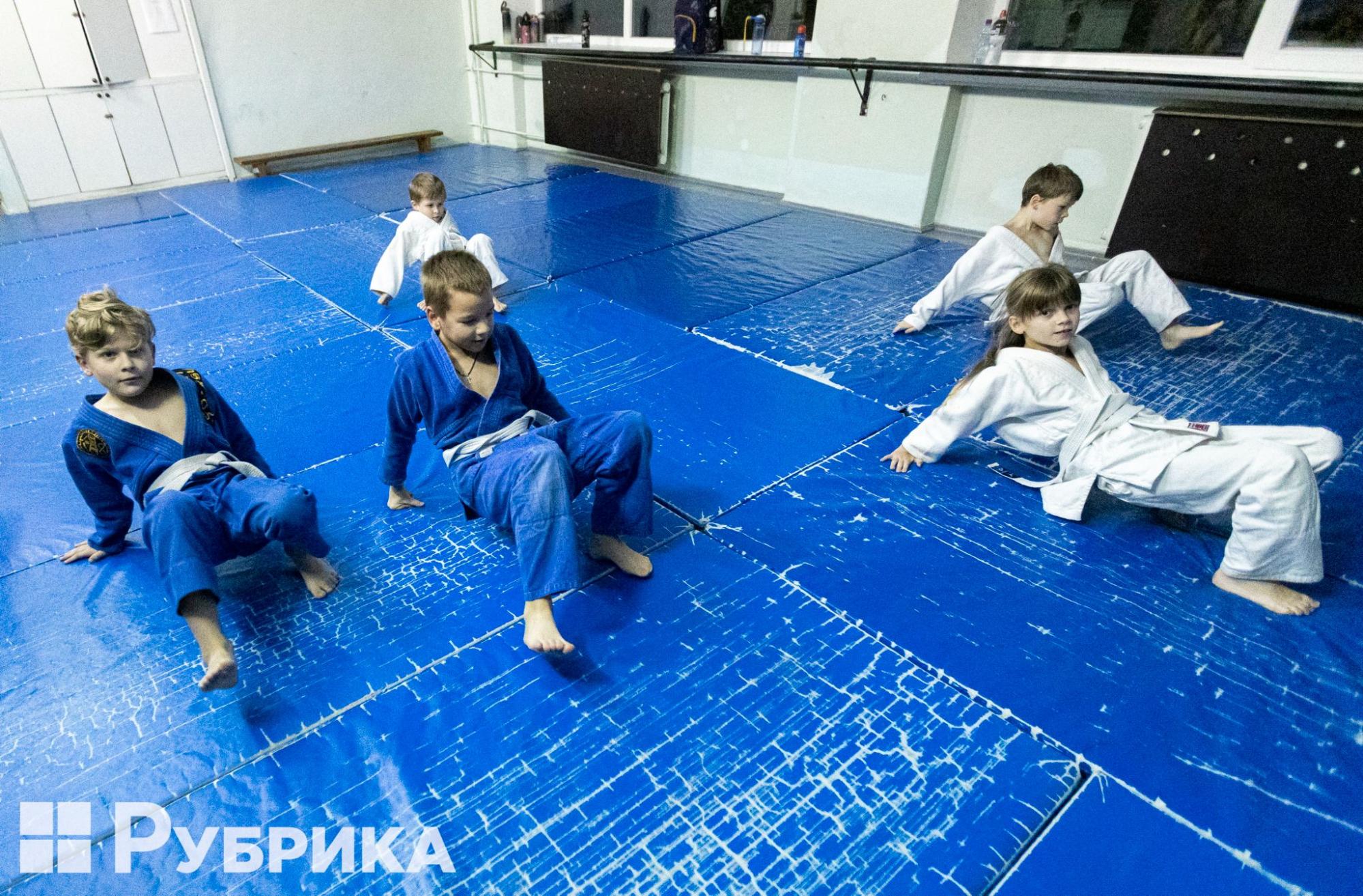
Children have plenty of energy in children at classes.
"We chose jiu-jitsu because children now have a lot of energy — both positive and negative. This surplus of energy, which a person accumulates in themself, has to go somewhere. When a child comes for an hour and a half of training, they direct this energy and anger in the right direction. It has a wonderful effect on children, their psyche and behavior," Maryna shares.
The coach adds that it is difficult now in Zaporizhzhia: children do not have social ties, do not know how to communicate, and are often aggressive due to external circumstances. Every family has its grief. Many children lost everything when they moved.
"Often, they move to a society where other children do not understand why this child walks and cries, why they look at someone else's dad. There are many children whose father is at war, and there are children who no longer have a father. When other dads pick children up from training, and this child looks in the other direction, you have to understand that their psyche is very traumatized," Maryna explains.
Children take the events that are happening close to their hearts. The coach believes that children should go into sports, where they can release energy. There is no need to silence the child's aggression or treat it with sedatives. Sport is the best method for releasing inner emotions.
"They should not go out in ten years and vent their aggression on people. Let it be better in the hall, at competitions — it has a very good effect on them," the coach is convinced.
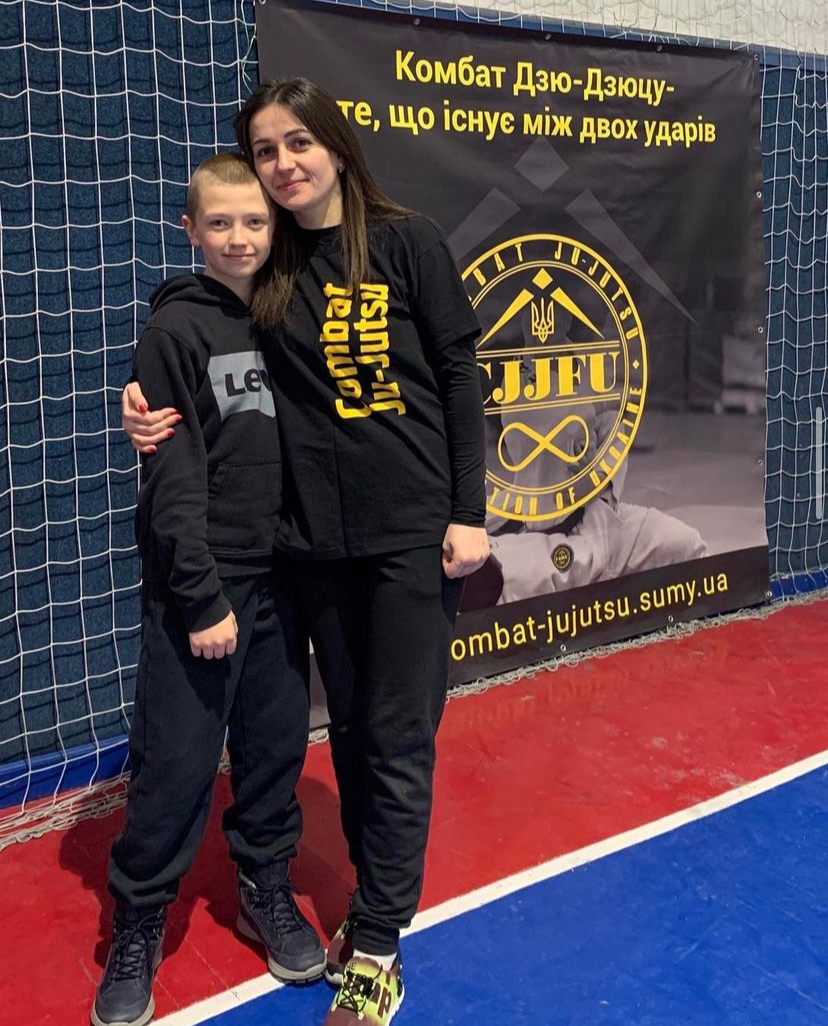
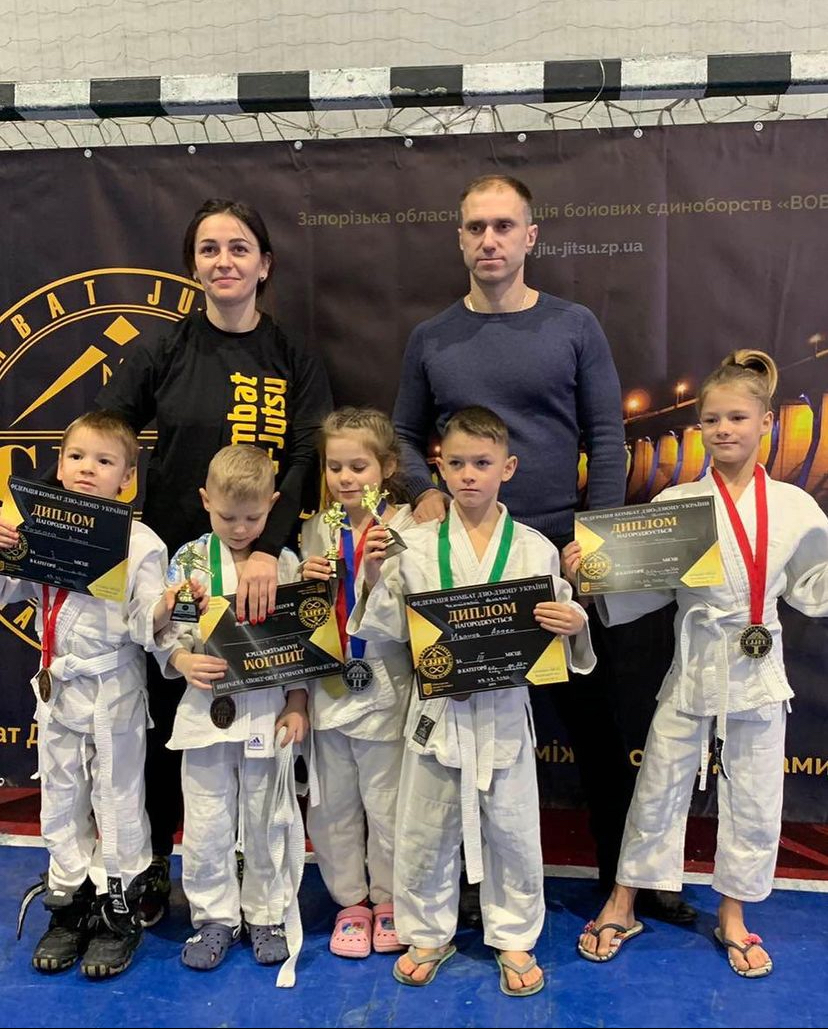
A couple with students at a martial arts competition. Photo: Maryna's personal archive.
The right to self-defense
The trainer has been playing sports since she was eight, so she also taught her daughter to play sports from a very young age. She laughs that her daughter started jiu-jitsu during Maryna's pregnancy — she continued to train and was not on maternity leave. When the child learned to walk, she began to accompany her mother in the hall. The coach does not regret this choice — now she sees from her daughter that a child who plays sports is psychologically more stable and strong.
"My daughter is now eight years old, and she survived the attack of three Shahed drones. It was fifteen meters from our window. A few days ago, there were three S300 missiles directly hit within 800 meters of us. It was very loud. Of course, our daughter is also worried and afraid, but I can see the difference between a child who does sport and one who doesn't," Maryna recalls.
The parents of the pupils have a positive attitude to the classes, and they understand that at a young age, sports are, first of all, about physical training. The trainer believes that every person has the right to self-defense: "Especially in the perspective of our future, this will be the number one topic. We must be prepared for the fact that our children must be able to defend themselves, not fight, but behave properly and be psychologically prepared. Jiu-jitsu classes help the child become self-confident: they can scream, run, and not freeze when in danger."
"I want sports to be accessible to everyone"
Due to Russian aggression, martial arts competitions and sports competitions in general are no longer held as often as before in Ukraine. The coach shares that now, every trip or sports camp falls on the parents' wallet, which is an unattainable amount for people who moved to Zaporizhzhia with limited savings. Even buying a uniform is a significant expense in the family budget.
The section continues its work thanks to donor funds and charitable contributions. Now, for example, they are involved in a project from the Zaporizhia non-governmental organization Aleksandra and S, which helps them cover the costs of renting a room.
"It would be great if sports developed more in Zaporizhzhia and there were more opportunities for children to train. It is expensive: paying utility bills for electricity and heating. A coach can do this on a charitable basis, but unfortunately, this will not be enough for everyone.
I would not like this project to end; I want it to last longer. When you see those grateful eyes, how children change, every story is very difficult. Many children have experienced something that even adults find difficult to survive. We will continue to train, raise them and fight," says Maryna.
The coach adds that sometimes parents must be rejected because the schedule and room size do not allow more children to be recruited. Now the couple is looking for a new place and someone who could help with the rent. They have the coverage and the necessary inventory.
"Parents of displaced children would like to send their children to sports, but the fees for training are beyond their reach. I want sports to be accessible to everyone," says the coach.
Maryna believes that they will succeed in everything because she works for the sake of children, which means for the sake of the future: "Children should be given special attention because they are our future."


